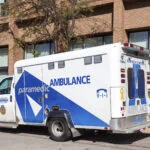Emerging Science about Alcohol and What it Means for Recovery
A recently published study found that alcohol is not just dangerous for its addiction potential but also because of its distressing links to cancer. Let’s look at the scientific findings and discuss what it means for addiction and recovery.
The Research on the Impacts of Alcohol and Cancer
A longitudinal study of the effects of alcohol on cancer rates has recently been published, and the results are concerning. According to the study published in The Lancet Oncology:
Alcohol use is associated with a vast range of injuries and diseases, including cancer, and is a leading risk factor for the global burden of disease. The consumption of alcoholic beverages is causally linked to cancers of the upper aerodigestive tract (oral cavity, pharynx, larynx, and oesophagus) and cancers of the colon, rectum, liver, and female breast.
While the link between alcohol and cancer is not surprising to those in the medical community, this new research is eye-opening for many. The general public is largely aware that things like drugs and cigarettes can be cancer-causing, but the medically harmful nature of alcohol is a surprise to some—particularly those who grew up around alcohol consumption or find it to be normalised in everyday society.
Why does this come as a surprise to so many? It could be because alcohol is so common (as it is served and sold in most restaurants, for example). Or perhaps because alcohol generally doesn’t have the aggressive warning labels that other substances, like vape pens and cigarettes, have emblazed on their packaging. Most people know that you shouldn’t drink and drive, and pregnant women should abstain. But what about everyone else? Little is discussed about the safety and general health impacts of alcohol on otherwise healthy people.
What This New Research Means for Recovery
It’s always good to have more research to discuss the realities of what substances can do to the body. However, most people in recovery will tell you that they knew alcohol was harmful for them, and, for many, are a catalyst for change. The negative impacts of alcohol on the body have been well documented, and this research is just a continuation of what we have already known and should have been discussing more frequently on both an individual and societal level.
Unfortunately, for those in active addiction, the carcinogenic or cancer-causing nature of alcohol is less important than feeling “better” or getting the “temporary distraction” in the moment. This is why, for many, addiction is so devastating. How the body, mind, or relationships are impacted doesn’t matter. The person with an addiction needs to keep drinking to get through the day. Trying to rationalise with someone in active addiction by discussing the health consequences can often be an unproductive conversation. Worse, trying to use logical arguments to “argue someone out of addiction” tends to go the other way, leaving people angrier, more aggressive, and more entrenched in their beliefs than they previously were.
How to Reach Out for Help with Alcohol
If you are struggling with problematic alcohol use, the research around cancer is probably the least of your day-to-day concerns. Wanting to reduce drinking often comes from a desire to make a change and will typically come from some sort of internal motivation. Maybe it’s physical health-related, maybe not. Either way, it’s a great step to take. Here are some tips for reaching out for support.
- Get Yourself Safe: Alcohol is incredibly unsafe for many reasons. Yes, it can eventually lead to cancer. This should not be disregarded. However, there are more immediate concerns when it comes to alcohol abuse that need to be considered. In severe cases, alcohol withdrawal can be dangerous or even deadly if not managed properly. If you’ve been drinking excessively or experiencing withdrawal symptoms when stopping alcohol use, consult a physician or go to the emergency room. If in Canada, the Nurse’s Line can be called anonymously (their number is 8-1-1).
- Talk To a Trusted Friend or Loved One: One of the first steps you might take is to go to somebody you are close to and let them know what’s going on. They can support you and help you find a helpful path. Telling friends and family about your struggles with addiction can seem like a scary first step. Still, typically, it’s a huge relief and a significant motivator to make major improvements in your life.
- Speak To a Counsellor: Drug and alcohol counsellors are trained to assist you with coming up with a plan to start a life of recovery. They have many resources and techniques to use and will provide judgment-free recovery support. Working with a counsellor is perfect for learning new, scientifically-proven recovery skills and enjoying consistent support, maybe for the first time.
- Attend a Meeting: Pretty much every city in North America has recovery groups. Regardless of ideologies, these are just places for people to come and share their stories, seek support, and learn new skills in a community environment. There are many different groups with different philosophies, but they can all be helpful for a person new to recovery by surrounding them with a group of like-minded people.
- Build a Recovery Plan: You, along with your counsellor and maybe including some close community members, can work together to create a wellness and recovery plan. This often includes introspection, activities that promote physical and mental health, healthy friends, and other resources that work towards helping you change your relationship with substances and give you more options and choices.
Conclusion
Reach out today if you are struggling with substance abuse or alcohol. While it is good to know the evolving research around addiction and cancer, the most important thing you can do for your health today is to talk to somebody about recovery. If you live in British Columbia, contact Hard Road Counseling today.







